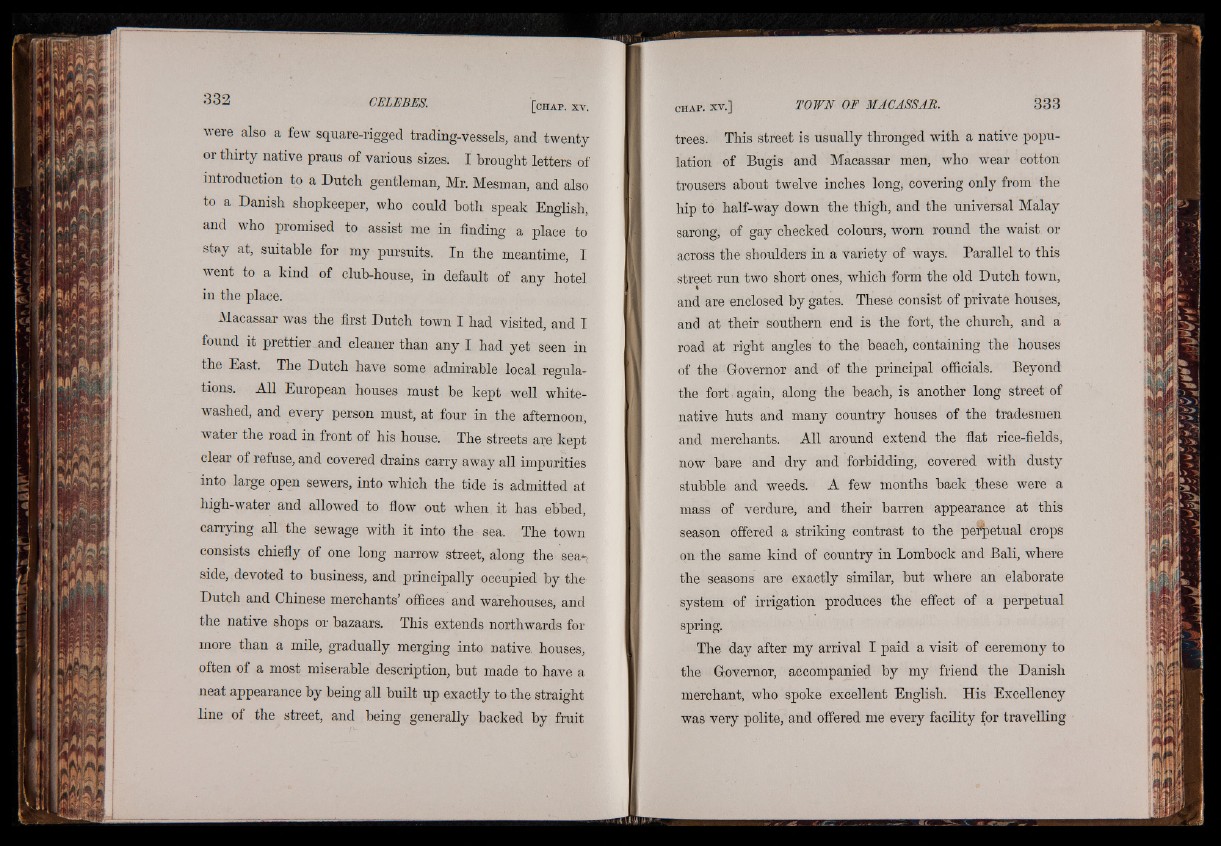
were also a few square-rigged trading-vessels, and twenty
or thirty native praus of various sizes. I brought letters of
introduction to a Dutch gentleman, Mr. Mesman, and also
to a Danish shopkeeper, who could both speak English,
and who promised to assist me in finding a place to
stay at, suitable for my pursuits. In the meantime, I
went to a kind of club-house, in default of any hotel
in the place.
Macassar was the first Dutch town I had visited, and I
found it prettier, and cleaner than any I had yet seen in
the East. The Dutch have some admirable local regulations.
All European houses must be kept well whitewashed,
and every person must, at four in the afternoon,
water the road in front of his house. The streets are kept
clear of refuse, and covered drains carry away all impurities
into large open sewers, into which the tide is admitted at
high-water and allowed to flow out when it has ebbed,
carrying all the sewage with it into the sea. The town
consists chiefly of one long narrow street, along the sea*,
side, devoted to business, and principally occupied by the
Dutch and Chinese merchants’ offices and warehouses, and
the native shops or bazaars. This extends northwards for
more than a mile, gradually merging into native, houses,
often of a most miserable description, but made to have a
neat appearance by being all built up exactly to the straight
line of the street, and being generally backed by fruit
trees. This street is usually thronged with a native population
of Bugis and Macassar men, who wear cotton
trousers about twelve inches long, covering only from the
hip to half-way down the thigh, and the universal Malay
sarong, of gay checked colours, worn round the waist or
across the shoulders in a variety of ways. Parallel to this
street run two short ones, which « form the old Dutch town,
and are enclosed by gates. These consist of private houses,
and at their southern end is the fort, the church, and a
road at right angles to the beach, containing the houses
of the Governor and of the principal officials. Beyond
the fort * again, along the beach, is another long street of
native huts and many country houses of the tradesmen
and merchants. All around extend the flat rice-fields,
now bare and dry and forbidding, covered with dusty
stubble and weeds. A few months back these were a
mass of verdure, and their barren appearance at this
season offered a striking contrast to the perpetual crops
on the same kind of country in Lombock and Bali, where
the seasons are exactly similar, but where an elaborate
system of irrigation produces the effect of a perpetual
spring.
The day after my arrival I paid a visit of ceremony to
the Governor, accompanied by my friend the Danish
merchant, who spoke excellent English. His Excellency
was very polite, and offered me every facility for travelling